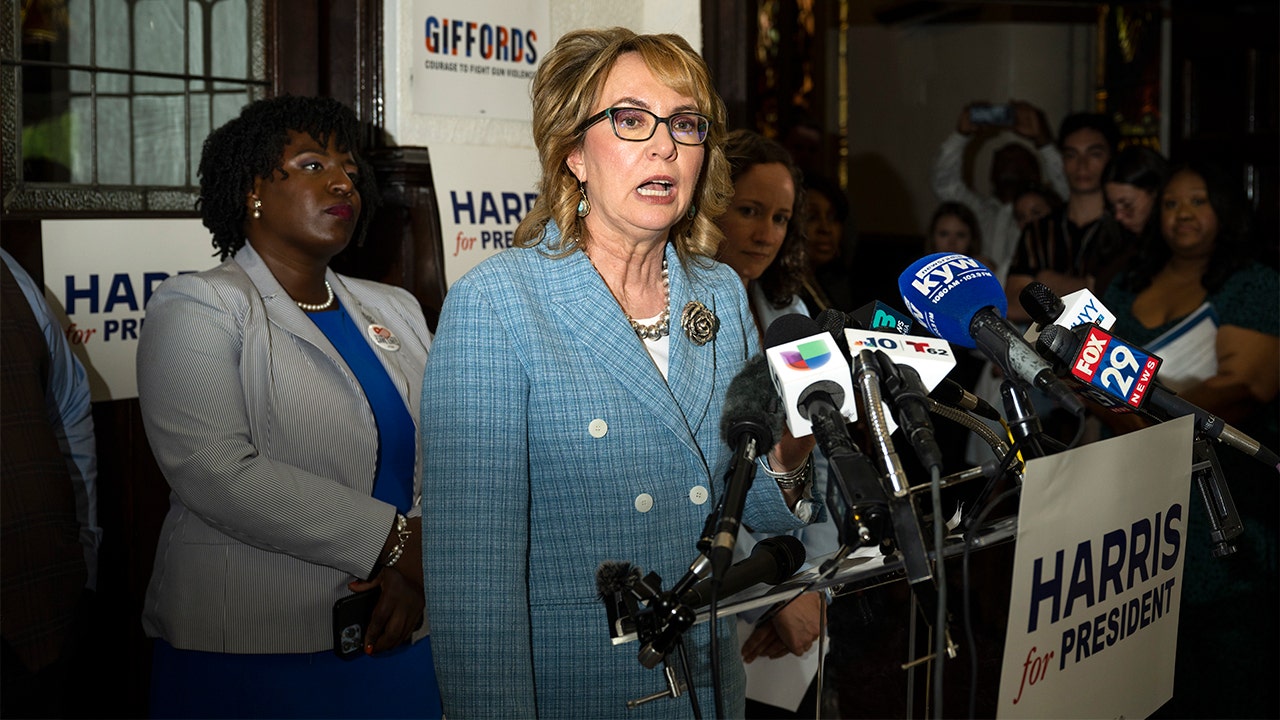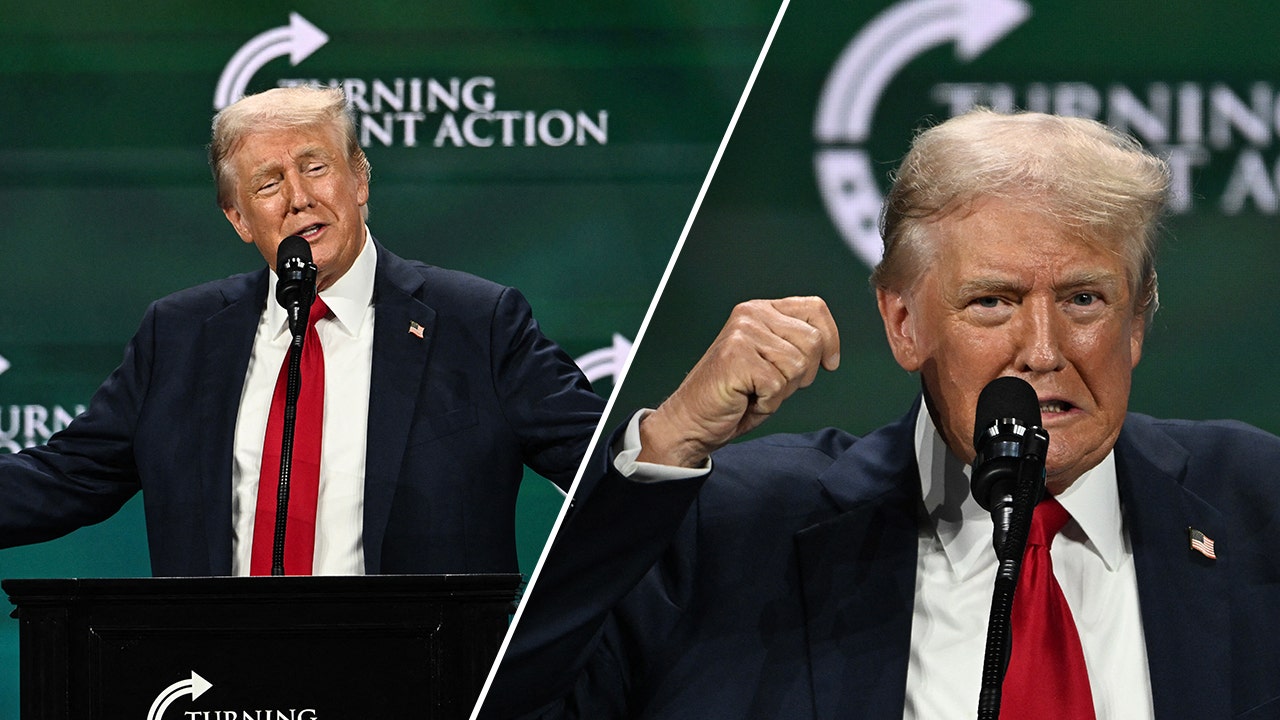Entertainment
Is California's film and TV tax credit in danger? Unions say so

Eager to negotiate a measure off the 2024 ballot that would make it harder to raise taxes, unions are alleging the initiative would end a California program that awards hundreds of millions of dollars annually in tax credits to television and film studios.
The claims are part of an effort by unions to increase pressure on business interests backing the measure to strike a deal to remove the proposal from the November ballot, which remains possible amid an intense negotiation period at the California state Capitol. If the concerns about the tax credits catch on, movie studio executives could be a powerful addition to the opposition campaign.
Losing film and television tax credits would be particularly damaging as the motion picture industry struggles to recover from the COVID-19 pandemic, two major strikes and an ongoing industry contraction.
“This thing has the potential to devastate our industry and the jobs that support it, as well as those that are touched by this industry,” said Thom Davis, president of the California council for Hollywood crew members union IATSE.
So far, no movie studios have joined the opposition campaign led by the Service Employees International Union California, California Teachers Assn, Northern California Regional Council of Carpenters and the State Building & Construction Trades Council of California.
Warner Bros. Discovery and a lobbyist for the Motion Picture Assn. declined to comment. The Times reached out Tuesday to several other major studios, including Disney, NBCUniversal, Sony, Paramount and Netflix, for comment.
The California Business Roundtable, a proponent of the measure, pushed back on the union claims. The film credits are a tax deduction, not an increase, and would not be affected by the ballot initiative, the business organization said.
“We’ve been waiting for these kinds of scare and intimidation tactics for weeks,” said Rob Lapsley, president of the roundtable.
Removing the Taxpayer Protection and Government Accountability Act from the November ballot is a top political priority of labor unions and Democrats, who are afraid voters will support the proposal and tip the balance of power in Sacramento.
The proposal, pushed by Lapsley’s group and the Howard Jarvis Taxpayers Assn., strips the state Legislature and the governor of the ability to increase taxes without statewide voter approval. The measure could limit state and local funding and make it more challenging for the governor and Legislature to generate funding for new programs, or respond to an economic crisis without sacrificing their own policy agenda.
The measure would have a “chilling effect on government’s ability to invest in services and infrastructure that the state of California and Californians need in order to grapple with all of the challenges ahead,” such as climate change, an aging population and the rise of artificial intelligence, said Keely Bosler, former director of the California Department of Finance who is working with the opposition campaign.
Gov. Gavin Newsom and Democratic state lawmakers petitioned the California Supreme Court last September to intervene, arguing that the change revises the California Constitution and should require a two-thirds vote in the Legislature to appear on the ballot. The high court heard oral arguments on the case in May and could offer a ruling to strike the measure from the November ballot.
Lawyers for the proponents and the opposition campaign disagree over whether the measure will impact film and TV tax credits.
The measure asks voters to require local governments to vote on all fee increases, which can now be approved administratively. The threshold to increase local special taxes would increase from a majority to a two-thirds vote of the people.
Fee increases at the state level, which are often approved by state agencies and boards, would need support from a majority of the state Legislature. The ballot measure also would expand the requirements necessary for a statewide tax increase, which currently can be done with a two-thirds vote of the Legislature. Under the measure, support from a majority of California voters also would be required.
The measure expands the definition of taxes and restricts the potential use of fees to only cover the cost of the service, potentially prohibiting government from redirecting revenue to other purposes.
Opponents say California’s film and TV tax credit program — which underwent a significant makeover in 2023 — could be in jeopardy due to a provision in the proposed ballot measure declaring that “any change in state law which results in a taxpayer paying a new or higher tax” must be passed by at least two thirds of the legislature and approved by a majority vote of the people.
A retroactive clause states that “any tax or exempt charge adopted after January 1, 2022, but prior to the effective date of this act” that was not implemented according to the above rules will be void one year after the measure is passed “unless the tax or exempt charge is reenacted in compliance with the requirements.”
Detractors have interpreted those excerpts to mean that Senate Bill 132 — a 2023 law extending California’s film and TV tax credit by five years and incorporating a new “refundable” feature permitting certain studios to qualify for direct payments from the state — would be overturned if the ballot measure passes in November. SB 132 isn’t scheduled to go into effect until 2025, so the opposition campaign is sounding the alarm about future funding to the tax credit program.
Unions began delivering the warnings in the final stretch of budget negotiations at the state Capitol. Newsom and Democrats are negotiating among themselves, unions and other interest groups about delaying an increase to the minimum wage for healthcare workers to $25 per hour and a pause on tax credits for businesses to close California’s $45-billion budget deficit.
Those talks are intertwined in conversations about the 2024 ballot measures. Under state law, proponents have the ability to withdraw their measures from the ballot before the June 27 qualifying deadline. Lapsley said he has been open to having talks about the provisions of his measure with opponents, but that hasn’t happened.
“We’ve been crystal clear that we would respect anyone who wants to sit down and have a discussion,” Lapsley said.
But Lapsley has also been adamant about the need for his proposal.
“The importance of [Taxpayer Protection and Government Accountability Act] for the statewide business community as a long term check and balance against a permanent two-thirds super majority progressive Legislature far outweighs any individual elements that they may be talking about at this point,” Lapsley said. “So that is our perspective on this, and that is why we continue to just move forward.”
The potential effects of the measure on the film tax credit could be a compelling argument for unions.
California currently awards about $330 million annually to dozens of entertainment companies that film in state — a relatively low number compared to more attractive tax programs offered by production hubs in other states and countries that compete with Hollywood for business.
Industry insiders and experts have cited the weakness of California’s tax credit program as one of several reasons why film and TV production has been declining in the state. A recent report by the Otis College of Art and Design found that Los Angeles’ share of domestic film and TV employment dropped 8% last year, losing ground to rivals such as Atlanta and New York.
A complete reversal of SB 132 would spell “absolute devastation” for the local entertainment community, Davis said. The Hollywood crew members he represents are already hurting badly from last year’s work stoppages and the sluggish return to production.
“California would just not be able to compete anymore,” Davis said.
“The questions [entertainment workers] are asking is, ‘Why would they do this to us?’” he added. “It’s almost like a personal attack.”

Movie Reviews
'Kenda' movie review: Intense drama with an allegorical twist

Sahadev Kelvadi’s ‘Kenda’ is set against the gritty backdrop of the late 1990s and early 2000s, the film plunges into the turbulent world of a young man adrift. Unemployed and without direction, he finds himself entangled in a complex web of crime and politics. As he navigates this treacherous landscape, he must confront the dark and primal desires that lurk within, threatening to consume him. Will he find redemption or succumb to the shadows that haunt him?
Protagonist Keshava’s (B V Bharath) humdrum existence is disrupted when he crosses paths with Narasimha Shastry (Vinod Ravindran), a leader with a hidden political agenda. Behind the façade of a respected newspaper owner, Shastry harbors a duplicitous nature, his words and actions a stark contrast.
Once he takes the fateful step, there’s no turning back, and Keshava’s fate becomes inextricably linked to the consequences of his choices.
At its core, Kenda is a powerful allegory for the eternal struggle to find purpose and authenticity in a chaotic world. The film also masterfully deconstructs the toxic effects of rigid masculinity, revealing the impact it has on individuals and society as a whole.
The film is a scathing critique of the establishment’s failures. Delving deeper, it masterfully explores the complex and often blurred lines between crime and politics, revealing the toxic symbiosis that can exist between the two.
This film draws inspiration from the likes of Albert Camus, Theatre of the Absurd and the French New Wave movement.
As a result, the film’s dialogue is infused with rich philosophical and literary references.
‘Kenda’ stands out for its grounded and realistic depiction of characters and the crime world, remarkably achieved without relying on explicit violence or gore.
While the first half of the film unfolds at a leisurely, the narrative gears up significantly in the second half. Ritwik Kaikini’s soft-rock soundtrack deserves a mention, so does the performance of lead artistes.
While ‘Kenda’ may have some minor flaws, that can be overlooked, the film meets the expectations.
Produced by Roopa Rao (‘Gantumoote’ fame). The film received an award for direction at Dada Saheb Phalke Film Festival.
Published 26 July 2024, 20:13 IST
Entertainment
Video game actors are on strike. Here's what that means

Video game performers are officially on strike.
The Screen Actors Guild-American Federation of Television and Radio Artists called a walkout this week on behalf of roughly 2,600 actors doing voice-over, motion-capture and other work in the gaming industry.
Union leaders took the step after they could not reach an agreement on artificial intelligence terms while bargaining for a new contract with the top video game companies, including Activision, Electronic Arts, Insomniac and Blindlight.
“We’re not going to consent to a contract that allows companies to abuse AI to the detriment of our members,” SAG-AFTRA President Fran Drescher said in a statement Thursday. “Enough is enough.”
Audrey Cooling, a spokesperson for the video game producers, said in a statement: “We are disappointed the union has chosen to walk away when we are so close to a deal, and we remain prepared to resume negotiations.”
How did we get here?
The union has been in contract negotiations with the video game companies since 2022, and the Interactive Media Agreement expired that November.
Video game performers are seeking a new agreement that will require video game producers to obtain their consent and compensate them when using AI to replicate their voices or likenesses. They are also demanding wage increases to keep up with inflation, more rest time and set medics for hazardous jobs.
Tensions escalated in September 2023, when union members voted 98% in favor of authorizing a strike.
Duncan Crabtree-Ireland, chief negotiator and national executive director of SAG-AFTRA, said at the time that the companies were not “willing to meaningfully engage on the critical issues,” including compensation, AI and safety.
The companies vowed to “negotiate in good faith to reach an agreement that reflects the important contributions” of game performers.
On July 20, the union’s national board of directors granted Crabtree-Ireland the authority to call a strike, citing a lingering dispute over AI.
How will this affect the video game companies?
Much like last year’s Hollywood writers’ and actors’ strikes against the film and TV studios and streaming services, this one could potentially lead to longer-term production lulls, particularly for games scheduled for release in 2025 or 2026.
Production is expensive and on a tight schedule, a reality that doesn’t give video game companies a lot of margin to “sit this out,” said Joost van Dreunen, an adjunct assistant professor at NYU Stern School of Business and author of “One Up: Creativity, Competition, and the Global Business of Video Games.”
For instance, companies can’t afford to miss out on the all-important holiday spending season. November and December traditionally account for about half of annual game sales, he said.
“If you don’t get things across the line, if you can’t finish your work and release it on time, you’re going to miss a very, very important window, and that’s going to hurt you financially,” Van Dreunen said.
But not all games are covered by the strike. According to contract provisions, games that were in production when the union provided the company with notice of its termination are not subject to the strike order, according to a SAG-AFTRA spokesperson.
What’s next?
As of Friday, SAG-AFTRA video game actors are barred from lending their services to any struck games.
Those services may include acting, singing, dancing, stunts, motion capture, auditions, camera tests, rehearsals, authorizing the use of one’s voice or likeness, background and stand-in work.
Covered performers are also prohibited from promoting struck games via social media, interviews, conventions, festivals, award shows, podcast appearances or any other platform. (The ongoing San Diego Comic-Con has been exempt from this rule due to its proximity to the strike announcement.)
The union has indicated that it will also hold pickets as part of the walkout.
Only time will tell how long it will take the union and the companies to reach a tentative agreement and end the work stoppage.
The last strike by video game actors stretched on for nearly a year, from October 2016 to September 2017. Back then, AI had yet to become a major concern and performers were pushing for residual-like payments based on video game sales — similar to how film and TV actors are compensated for their work.
Van Dreunen said companies would likely try to resolve the contract negotiations by September, but at the latest, by the end of the year, before answering to investors during their next earnings calls.
Movie Reviews
'Deadpool & Wolverine' movie review: Fox's last dance, Deadpool & Wolverine bromance

Superhero fatigue is real. With no good movies recently, Marvel has lost its course. But brace yourselves — straight from 20th Century Fox, sorry, Disney — a hero makes his grand MCU entrance. He’s the messiah, the merc with a mouth; he is… The Marvel Jesus. Buckle up, peanut, because this isn’t your average cape-and-tights movie — or is it?
Directed by Shawn Levy (‘Free Guy’), this third instalment is a hot mess —kind of like Wade Wilson himself on a bad hair day. Just as the world’s falling apart (again), the Time Variance Authority’s Paradox (Matthew Macfyden) recruits him to put his timeline out of its misery. Deadpool refuses and drags the worst variant of the Wolverine (Hugh Jackman) out of retirement to help stop this crazy scheme. They are sent to the ‘Void’ — yes, the same one from ‘Loki’ season one, episode five, now ruled by Cassandra Nova (Emma Corrin), Professor Charles Xavier’s evil twin.
The film takes you on a wild ride with surprise appearances from the Fox Universe. The plot is a bit shaky with jokes that sometimes fall flat, but it’s saved by some really cool action sequences, with slow-motion effects set to popular ’90s tunes. It’s a fun, if messy, farewell to the Fox universe, offering a peek at what mutant battles might look like in the MCU — and it doesn’t look too bad. Ryan Reynolds keeps it lively with his snappy humour, and Hugh Jackman proves yet again why he’s the ultimate Wolverine, leaving us with a touching montage of his ‘X-Men’ moments during the end credits.
So, does this Marvel messiah live up to the hype? Well, yes and no. Deadpool doesn’t exactly ace it. He’s the irritating but quirky hero we didn’t even know we needed, flipping the MCU on its head and turning multiversal crises into comedy gold. Marvel dug deep into the Fox universe, like scraping the last bits of chicken from a biryani pot.
The movie might do well at the box office, but they really need to sort out their timelines (pun intended) before they kick off the Mutant Saga.
Published 26 July 2024, 20:20 IST
-

 World1 week ago
World1 week agoOne dead after car crashes into restaurant in Paris
-

 Midwest1 week ago
Midwest1 week agoMichigan rep posts video response to Stephen Colbert's joke about his RNC speech: 'Touché'
-

 News1 week ago
News1 week agoVideo: Young Republicans on Why Their Party Isn’t Reaching Gen Z (And What They Can Do About It)
-

 Movie Reviews1 week ago
Movie Reviews1 week agoMovie Review: A new generation drives into the storm in rousing ‘Twisters’
-

 Politics1 week ago
Politics1 week agoFox News Politics: The Call is Coming from Inside the House
-

 News1 week ago
News1 week agoVideo: J.D. Vance Accepts Vice-Presidential Nomination
-

 World1 week ago
World1 week agoTrump to take RNC stage for first speech since assassination attempt
-

 News1 week ago
News1 week agoRNC speakers want to separate the president from the person to show softer side of Trump













